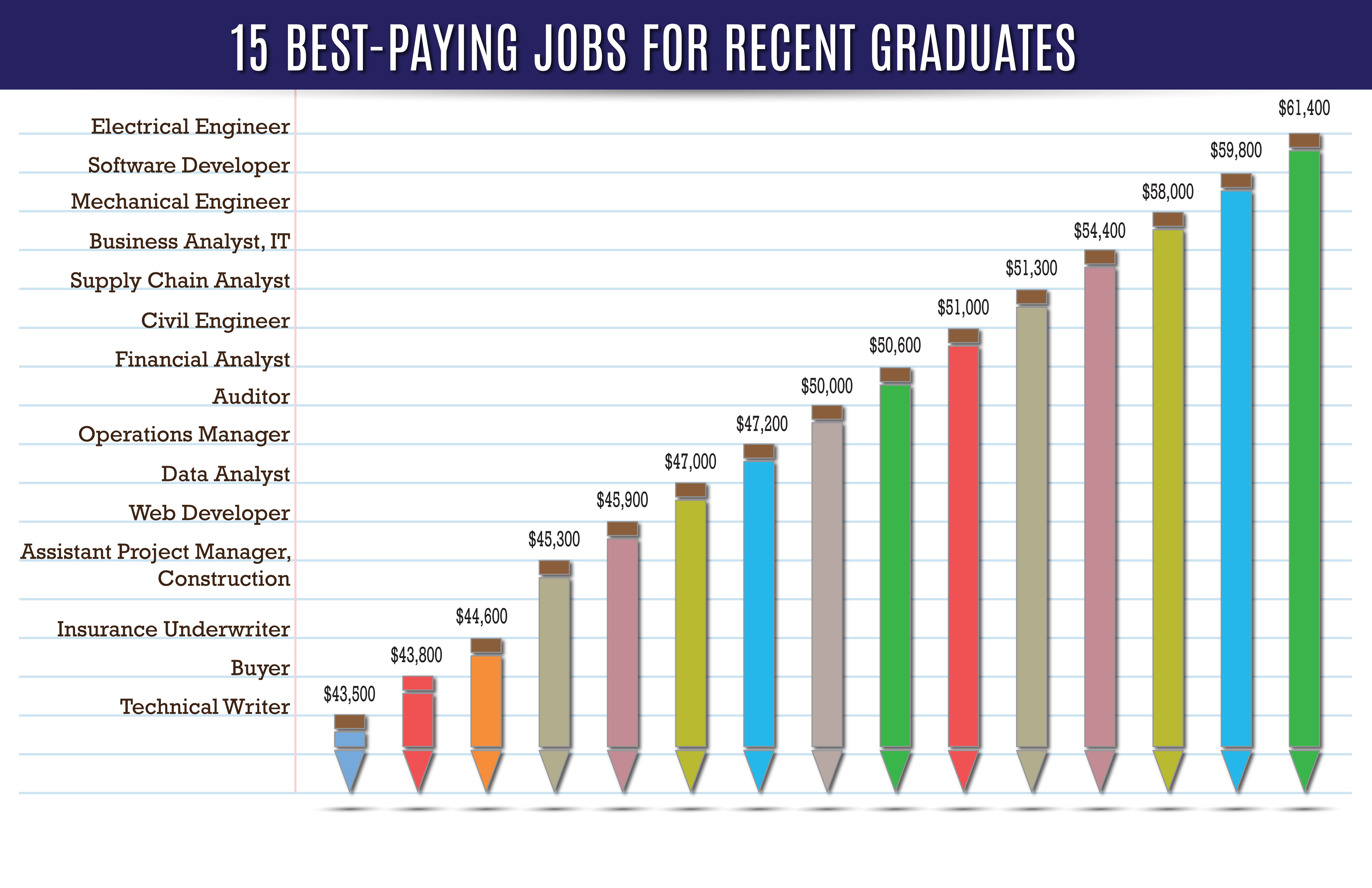Why Certain Professions Command Higher Salaries
When it comes to understanding what jobs get you rich, it’s essential to examine the factors that contribute to high-paying careers. Industry demand, skill requirements, and growth opportunities are key drivers of lucrative salaries. As the job market continues to evolve, certain professions have emerged as highly sought after, commanding higher salaries due to their value to organizations and society.
One of the primary factors influencing high-paying jobs is industry demand. As technology advances and new industries emerge, the demand for skilled professionals in these areas increases, driving up salaries. For instance, the rise of the tech industry has created a high demand for skilled software engineers, data scientists, and cybersecurity experts, resulting in lucrative salaries for these professionals.
Skill requirements also play a significant role in determining high-paying careers. Professions that require specialized skills, such as medicine, law, and finance, often command higher salaries due to the level of expertise and education required. Additionally, skills that are in short supply, such as data analysis and digital marketing, can also lead to higher salaries as companies compete for top talent.
Growth opportunities are another critical factor in high-paying careers. Industries that are experiencing rapid growth, such as renewable energy and healthcare technology, offer professionals the chance to advance quickly and earn higher salaries. Furthermore, companies that invest heavily in research and development, such as pharmaceutical and biotech firms, often offer high-paying careers to attract top talent.
Understanding these factors can help individuals make informed career choices and increase their earning potential. By identifying in-demand skills, emerging industries, and growth opportunities, professionals can position themselves for success and potentially secure high-paying jobs that can lead to wealth and financial stability.
How to Identify Lucrative Career Paths
Identifying high-paying career paths requires research, networking, and a willingness to explore emerging industries. To uncover what jobs get you rich, it’s essential to stay informed about job market trends, industry developments, and the skills required for in-demand professions.
One effective way to identify lucrative career paths is to research job market trends. Utilize online resources, such as job boards, career websites, and industry reports, to stay up-to-date on the latest job market trends and salary ranges. This information can help you identify high-paying careers and make informed decisions about your career path.
Networking with professionals in your desired field is another valuable way to identify high-paying career paths. Attend industry events, join professional organizations, and connect with professionals on LinkedIn to gain insights into their careers and learn about job opportunities. This can also help you build relationships with people who can provide guidance and support throughout your career.
Exploring emerging industries is also crucial in identifying high-paying career paths. Industries such as renewable energy, cybersecurity, and healthcare technology are experiencing rapid growth and offer a range of high-paying job opportunities. By staying informed about these industries and the skills required for success, you can position yourself for a lucrative career.
Additionally, consider the following strategies to identify high-paying career paths:
- Utilize online resources, such as the Bureau of Labor Statistics’ Occupational Outlook Handbook, to research job market trends and salary ranges.
- Join online communities and forums related to your desired field to connect with professionals and stay informed about industry developments.
- Participate in job shadowing or internship programs to gain hands-on experience and learn about job opportunities.
- Stay up-to-date on industry news and developments by reading trade publications and attending industry events.
By employing these strategies, you can identify high-paying career paths and make informed decisions about your career. Remember to stay flexible and adapt to changing job market trends to ensure long-term success.
The Top High-Paying Jobs Across Various Industries
When it comes to what jobs get you rich, several professions stand out across various industries. These high-paying jobs often require specialized skills, education, and experience, but can provide significant financial rewards. Here are some of the top high-paying jobs across different sectors:
Finance:
- Investment Banker: $100,000 – $200,000 per year. Investment bankers work with clients to raise capital, advise on mergers and acquisitions, and manage financial transactions.
- Hedge Fund Manager: $150,000 – $1 million per year. Hedge fund managers invest and manage funds on behalf of clients, with the goal of generating high returns.
Technology:
- Software Engineer: $100,000 – $200,000 per year. Software engineers design, develop, and test software programs for a wide range of industries.
- Data Scientist: $118,000 – $170,000 per year. Data scientists collect, analyze, and interpret complex data to help organizations make informed decisions.
Healthcare:
- Physician: $200,000 – $600,000 per year. Physicians diagnose and treat patients, prescribe medications, and perform surgeries.
- Dentist: $150,000 – $300,000 per year. Dentists examine, diagnose, and treat patients’ teeth and gums.
Law:
- Corporate Lawyer: $150,000 – $250,000 per year. Corporate lawyers advise clients on business law, mergers and acquisitions, and regulatory compliance.
- Intellectual Property Lawyer: $120,000 – $200,000 per year. Intellectual property lawyers specialize in patents, trademarks, and copyrights.
These high-paying jobs often require advanced degrees, specialized training, and significant experience. However, for those who are willing to put in the time and effort, the financial rewards can be substantial. By understanding what jobs get you rich, individuals can make informed career choices and work towards achieving their financial goals.
The Role of Education and Skills in High-Paying Careers
When it comes to what jobs get you rich, education and skills play a crucial role in securing high-paying careers. Acquiring in-demand skills and pursuing higher education can significantly increase earning potential and open doors to lucrative job opportunities.
The Importance of Education
A higher level of education is often a prerequisite for high-paying jobs. Many industries require specialized knowledge and training, which can only be acquired through formal education. For example, careers in law, medicine, and engineering typically require a bachelor’s degree or higher. Additionally, advanced degrees such as master’s and Ph.D.s can provide a competitive edge in the job market and lead to higher salaries.
In-Demand Skills
Certain skills are in high demand across various industries, and possessing these skills can make an individual more attractive to potential employers. Some of the most in-demand skills include:
- Data analysis and science
- Cloud computing and cybersecurity
- Artificial intelligence and machine learning
- Digital marketing and e-commerce
- Programming languages such as Python, Java, and JavaScript
Acquiring In-Demand Skills
There are several ways to acquire in-demand skills, including:
- Online courses and certifications
- Professional training programs
- Workshops and conferences
- Self-study and personal projects
The Benefits of Upskilling
Upskilling and reskilling can have a significant impact on earning potential. According to a report by the World Economic Forum, workers who upskill and reskill can increase their salaries by up to 20%. Additionally, acquiring in-demand skills can lead to greater job security, career advancement opportunities, and a competitive edge in the job market.
In conclusion, education and skills are essential for securing high-paying careers. By acquiring in-demand skills and pursuing higher education, individuals can increase their earning potential and open doors to lucrative job opportunities. Whether through formal education or self-directed learning, investing in skills development can have a significant impact on long-term career success and wealth creation.
Entrepreneurship and Alternative Paths to Wealth
While traditional employment can provide a stable income, it may not be the most lucrative path to wealth. For those who are willing to take risks and think outside the box, entrepreneurship and alternative paths to wealth can offer significant financial rewards.
Entrepreneurship
Starting one’s own business can be a challenging but rewarding experience. Successful entrepreneurs can earn significant profits, but it requires hard work, dedication, and a willingness to take calculated risks. Some of the most successful entrepreneurs have built their fortunes by identifying gaps in the market and creating innovative solutions to meet those needs.
Freelancing
Freelancing is another alternative path to wealth that has gained popularity in recent years. With the rise of the gig economy, freelancers can offer their skills and services to clients on a project-by-project basis. This can provide a flexible and lucrative way to earn a living, especially for those with in-demand skills such as writing, design, or programming.
Investing
Investing is a more passive alternative path to wealth that can provide significant returns over time. Whether it’s investing in stocks, real estate, or other assets, those who are willing to take calculated risks and do their research can earn substantial profits.
Benefits and Challenges
While entrepreneurship and alternative paths to wealth can offer significant financial rewards, they also come with unique challenges. Some of the benefits include:
- Autonomy and flexibility
- Unlimited earning potential
- Opportunities for innovation and creativity
However, there are also challenges to consider, such as:
- Financial risk and uncertainty
- High levels of stress and pressure
- Continuous learning and adaptation
Examples of Successful Individuals
There are many examples of successful individuals who have pursued entrepreneurship and alternative paths to wealth. Some notable examples include:
- Steve Jobs, co-founder of Apple
- Elon Musk, founder of Tesla and SpaceX
- Warren Buffett, investor and CEO of Berkshire Hathaway
These individuals demonstrate that with hard work, determination, and a willingness to take calculated risks, it is possible to achieve significant wealth and success through entrepreneurship and alternative paths.
Industry Trends and Emerging Opportunities
As the job market continues to evolve, certain industries are poised to create high-paying job opportunities in the future. Understanding these trends and emerging opportunities can help individuals position themselves for success and increase their chances of landing a lucrative career. So, what jobs get you rich? Let’s explore some of the most promising industries and job roles that are likely to generate wealth.
One of the most significant trends is the growth of the technology industry, particularly in areas like artificial intelligence, cybersecurity, and data science. As technology advances, the demand for skilled professionals who can develop and implement innovative solutions is skyrocketing. Jobs like software engineers, data scientists, and cybersecurity experts are already commanding high salaries, and this trend is expected to continue in the coming years.
Another emerging opportunity is in the field of renewable energy and sustainability. As concern for the environment grows, companies are investing heavily in sustainable technologies and practices. This has created a surge in demand for professionals with expertise in solar and wind energy, sustainable architecture, and environmental engineering. Jobs like sustainability consultants, renewable energy engineers, and green architects are becoming increasingly lucrative.
The healthcare industry is also experiencing significant growth, driven by an aging population and an increased focus on preventative care. Jobs like healthcare administrators, medical researchers, and health informatics specialists are in high demand, and salaries are reflecting this trend.
Finally, the rise of the gig economy and remote work has created new opportunities for freelancers and entrepreneurs. With the advancement of digital technologies, it’s now possible to work remotely and connect with clients and customers from all over the world. This has created a surge in demand for skilled freelancers, particularly in areas like writing, design, and programming.
To capitalize on these trends and emerging opportunities, it’s essential to acquire the right skills and qualifications. This may involve pursuing higher education or certifications, building a professional network, and staying up-to-date with industry developments. By doing so, individuals can position themselves for success and increase their chances of landing a high-paying job in a growth industry.
Creating a Career Roadmap to Wealth
Creating a career roadmap is essential for achieving wealth and success in one’s profession. A well-planned roadmap helps individuals set clear financial goals, develop a skills acquisition plan, and build a professional network. By following a structured approach, individuals can increase their chances of landing high-paying jobs and achieving financial stability.
The first step in creating a career roadmap is to set clear financial goals. This involves determining what jobs get you rich and what salary range is required to achieve financial stability. Individuals should research the job market, identify high-paying career paths, and set realistic financial goals. For instance, if an individual wants to earn a six-figure salary, they should identify the skills and qualifications required for such jobs and create a plan to acquire them.
Developing a skills acquisition plan is the next crucial step. This involves identifying the skills and qualifications required for high-paying jobs and creating a plan to acquire them. Individuals should research the job market, identify the most in-demand skills, and pursue relevant education and training. For example, if an individual wants to become a data scientist, they should pursue a degree in computer science or statistics and acquire relevant skills in programming languages like Python or R.
Building a professional network is also essential for achieving wealth and success. Individuals should attend industry events, join professional organizations, and connect with professionals in their desired field. This helps individuals stay informed about industry trends, learn about job opportunities, and gain valuable advice from experienced professionals.
A career roadmap should also include a plan for continuous learning and professional development. Individuals should stay up-to-date with industry trends, acquire new skills, and pursue certifications or advanced degrees. This helps individuals stay competitive in the job market, increase their earning potential, and achieve financial stability.
Finally, a career roadmap should include a plan for managing finances and overcoming obstacles. Individuals should create a budget, manage debt, and build an emergency fund. They should also develop a plan for overcoming common obstacles like job loss, career stagnation, and financial setbacks.
By creating a comprehensive career roadmap, individuals can increase their chances of achieving wealth and success. A well-planned roadmap helps individuals set clear financial goals, develop a skills acquisition plan, build a professional network, and manage finances effectively. By following a structured approach, individuals can land high-paying jobs, achieve financial stability, and enjoy a successful and fulfilling career.
Overcoming Obstacles and Staying Motivated
Embarking on a journey to wealth and success can be challenging, and it’s common to encounter obstacles along the way. However, with the right mindset and strategies, individuals can overcome these challenges and stay motivated on their path to wealth. So, what jobs get you rich? While there’s no one-size-fits-all answer, understanding the common obstacles and how to overcome them can help individuals achieve their financial goals.
One of the most significant obstacles to wealth is debt. High levels of debt can limit financial flexibility, increase stress, and make it difficult to achieve long-term financial goals. To overcome debt, individuals should create a budget, prioritize debt repayment, and consider consolidating debt into lower-interest loans or credit cards.
Another common obstacle is career stagnation. When individuals feel stuck in their careers, they may struggle to stay motivated and engaged. To overcome career stagnation, individuals should focus on building new skills, seeking out new challenges, and exploring new opportunities. This can include pursuing additional education or training, networking with professionals in their industry, or seeking out mentorship.
Building resilience is also essential for overcoming obstacles and staying motivated. When individuals encounter setbacks or failures, they should focus on learning from their mistakes and using them as opportunities for growth. This can include developing a growth mindset, practicing self-care, and seeking out support from friends, family, or mental health professionals.
Maintaining a growth mindset is also critical for achieving wealth and success. When individuals believe that their abilities and intelligence can be developed, they’re more likely to take risks, seek out new challenges, and persist in the face of obstacles. To cultivate a growth mindset, individuals should focus on learning from their mistakes, seeking out feedback, and embracing challenges as opportunities for growth.
Finally, staying motivated requires a clear understanding of one’s financial goals and a plan for achieving them. Individuals should set specific, measurable, and achievable goals, and create a plan for achieving them. This can include breaking down large goals into smaller, manageable steps, creating a schedule, and tracking progress.
By overcoming common obstacles and staying motivated, individuals can achieve their financial goals and create a more prosperous future. Whether it’s paying off debt, building new skills, or maintaining a growth mindset, the key to success is staying focused, adaptable, and committed to one’s goals. By following these strategies, individuals can unlock the secrets to high-paying careers and achieve the wealth and success they desire.





